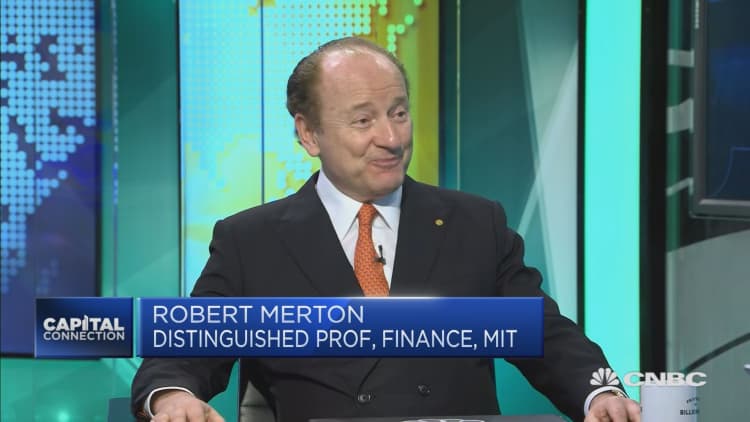
The encroachment of technology into the financial space may have many in the industry worried about getting displaced, but one group may not have to worry so much, according to a Nobel laureate.
That is, wealth managers may be safe from total disruption from robo-advisors, according to Robert Merton, distinguished professor of finance at MIT and the winner of the Nobel Memorial Prize in Economic Sciences. That's because programs using artificial intelligence to advise investors lack a fundamental ability their human counterparts possess, he explained.
"What you need to make technology work is to create trust. Technology doesn't create trust on its own," Merton said.
That inability could create plenty of headwinds for disruption in the wealth management space. As an investor or client, "you have no idea what the motivation behind that advice was. You have no idea what model ... You have no idea what data was being used," Merton added.
Investors might also be hard-pressed to choose a reliable robo-advisor given the massive number of A.I. models available, the professor said, adding that bad models in finance are only revealed when "it's too late."
The situation creates opportunities for human advisors — those dealing with trust — to do very well, even as the wider financial industry moves toward further automation, according to the Nobel laureate.
"If I certify the technology or robo I'm using for you, you're trusting me, not the machine," Merton said.

